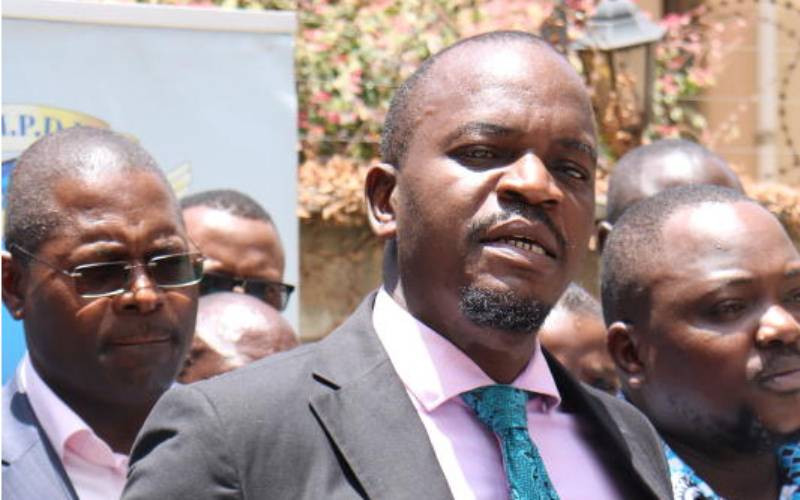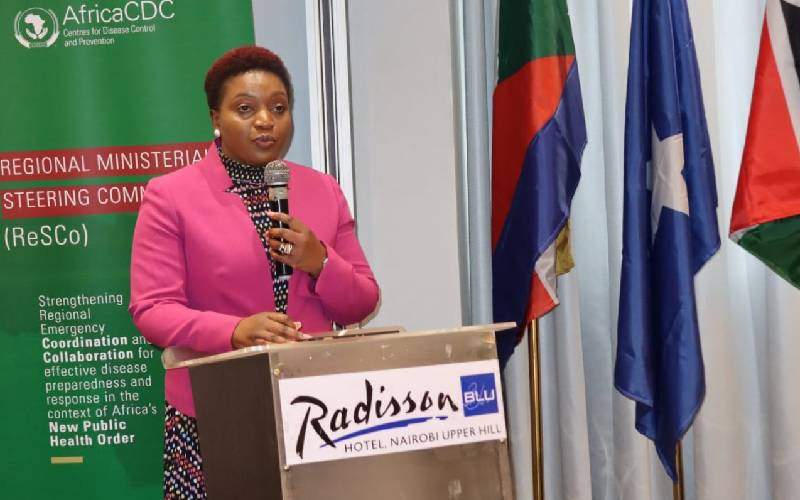
The Ministry of Health has started a campaign for the public to donate blood to mitigate the current shortage in the country.
The first event was marked on Saturday at Landi Mawe in Eastlands, Nairobi. Cabinet Secretary Mutahi Kagwe in a statement said the docket has styarted supplying consumables for screening to hospitals across the country. He acknowledged that there are criminal elements, sometimes within the Health ministry, colluding with outsiders to escalate the shortage problem. "The ministry, through the Kenya National Blood Transfusion Service is working with stakeholders to address shortage and ensure sustainable supply of safe blood," Kagwe said. The KNBTS was set up in 2001 to ensure availability of quality blood services. The agency collects, tests, processes and distributes blood products to transfusing hospitals. However, the process is hindered by cartels who according to Kagwe do not care about the patients dying in hospitals in need of blood. The ministry appealed to the Director of Criminal Investigation, George Kinoti, to step in and address the matter of cartels in the blood business. Kagwe further added, "We are putting measures in place to deal with the issue of blood shortage."Kenya is facing a shortage of blood supplies in its hospitals, with relatives and friends of patients increasingly having to put out calls for people to donate.
In some cases, the Kenya Red Cross will post these social media appeals on Twitter.
Kenya’s population is 47 million, so even if just 1 per cent donated blood, the country would have at least 470,000 units.
But in 2018/2019, only 164,000 units of blood were collected, much less than these guidelines, as Kenyans are reluctant to donate.The figures have not changed much over the years.
The Government has been holding public blood donation events. It is also targeting adult donors to avoid blood shortages during school holidays as it relies heavily on donations by secondary school pupils.
The vast majority of funding for blood collection - some 80 per cent - came from outside donors, according to a recent government report.
This ensured there was money for essential supplies, personnel and other blood safety-related costs.The main donor was the US government, through the President’s Emergency Plan for Aids Relief - known as Pepfar. It’s a programme to help save the lives of those suffering from HIV/Aids around the world.
Kenya was a major beneficiary of this, but funding was cut back last September, as a result of which supplies and equipment for the blood supply programme stopped.
On February 18, Ruweida Obo, Lamu County MP, said the problem has been over-reliance on donors. “When the funds were cut the government didn’t have an alternative plan in place,” she says.
In December last year, blood shortage in hospitals in Nyanza worsened, with several hospitals reporting that they had depleted their stocks.
The crisis at the blood bank was also attributed to the US government withdrawing funding from the country’s blood-related services.
With the crippling shortage, patients in need of blood are forced to pay for it from their own pocket.
The majority of public hospitals have patients buying blood from private facilities, which also run out of stock. The Standard Group Plc is a multi-media organization with investments in media platforms spanning newspaper print
operations, television, radio broadcasting, digital and online services. The Standard Group is recognized as a
leading multi-media house in Kenya with a key influence in matters of national and international interest.
The Standard Group Plc is a multi-media organization with investments in media platforms spanning newspaper print
operations, television, radio broadcasting, digital and online services. The Standard Group is recognized as a
leading multi-media house in Kenya with a key influence in matters of national and international interest.











